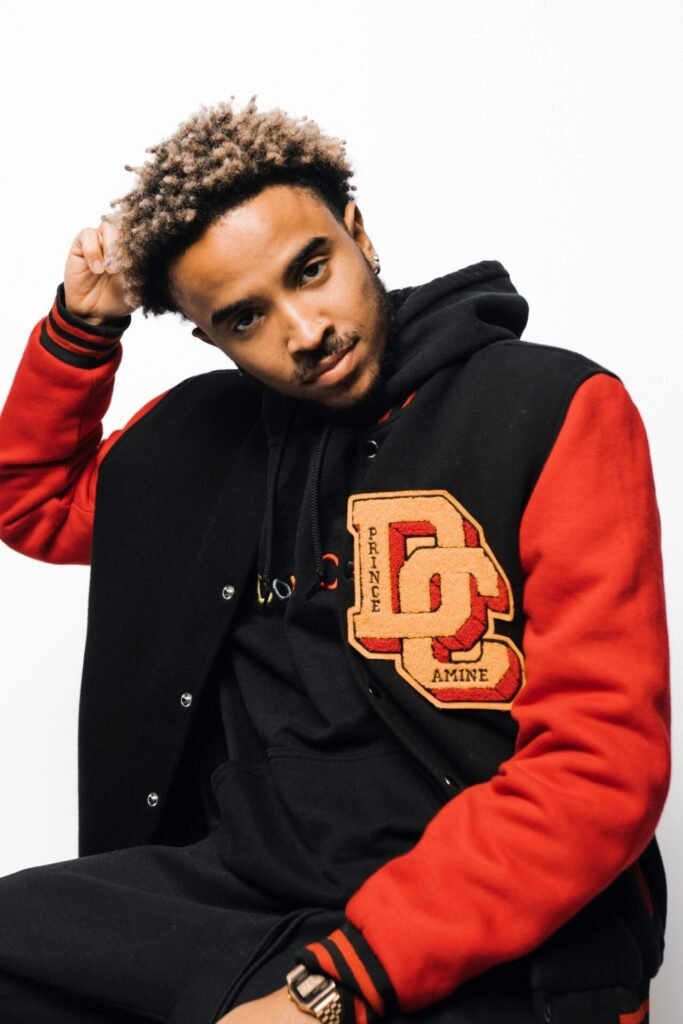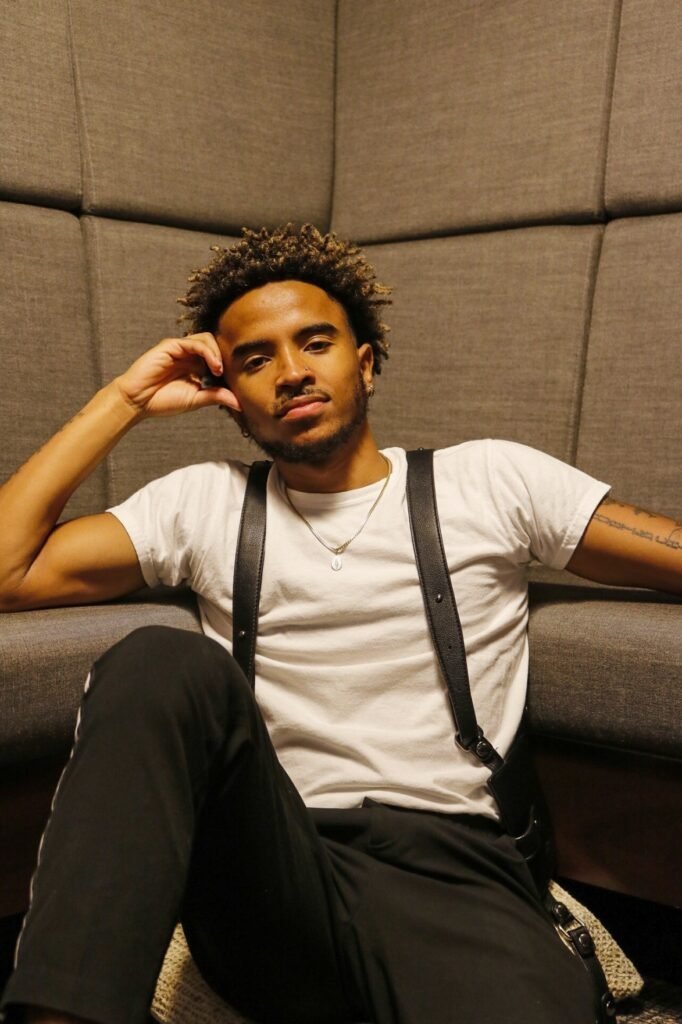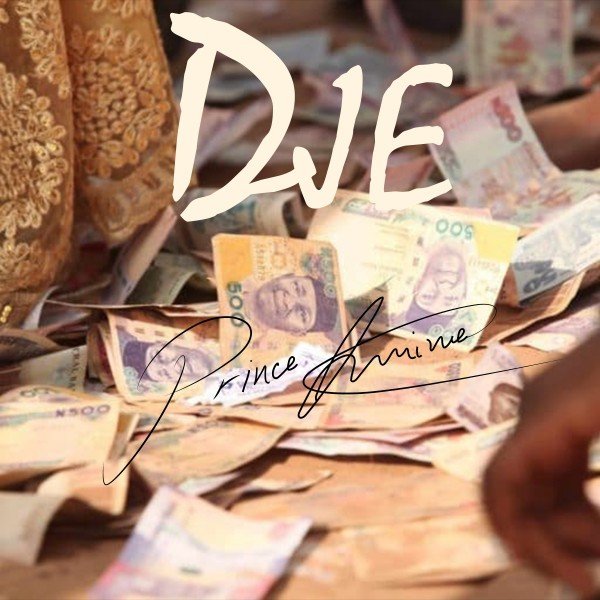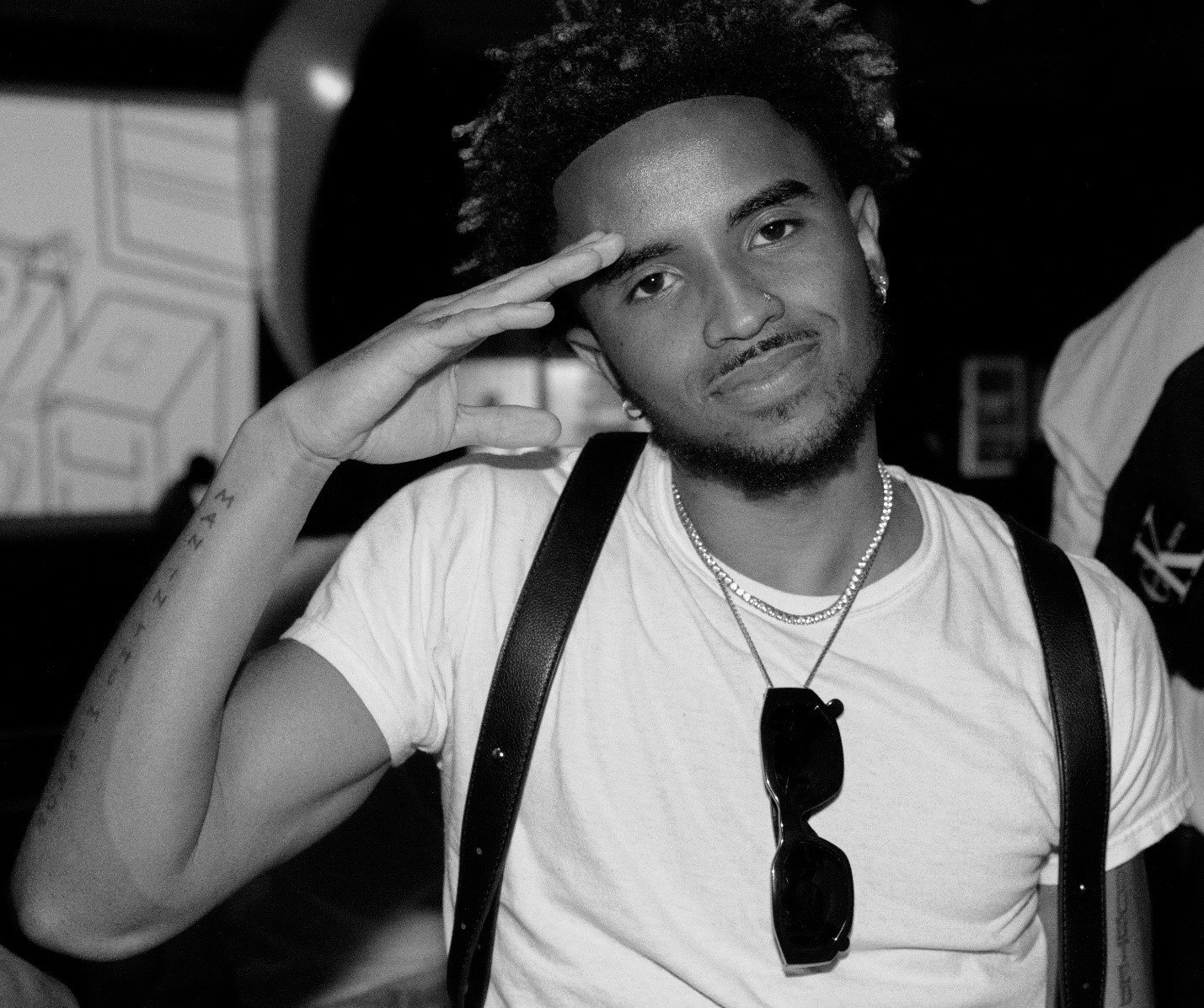Prince Amine is a Montreal-based hip hop and R&B artist with a sound as distinctive and varied as his multicultural upbringing. He was born in Morocco and lived with his African American father for the majority of his early years in Spain before relocating to Canada at the age of nine. His father, a performer himself, taught him the tricks of the trade and introduced him to the music of legendary Motown and R&B artists.
Prince Amine started performing and writing songs in high school because music runs in his family. On his 18th birthday, he released his debut album, XVIII, which immediately generated buzz in the Montreal hip hop scene. Without missing a beat, he followed that up with the well-received Hram Vybez album, which debuted at #9 on the NACC Hip Hop Chart less than a year later. He worked diligently with producer PL Cérat for two years before releasing his concept album, Doubted Child, in 2020. The album examines the highs and lows of a budding musician. Prince set a goal for himself in 2021 to release a new banger for your speakers every month. However, in 2022, he wants to concentrate on just one album.
Young M.A., Dadju, Maître Gims, and Mr. Eazi were all opened for by Prince Amine, who is renowned for his charismatic and engaging stage presence. Michael Jackson, Chris Brown, Burna Boy, and Wizkid are some of his main musical influences.
Everyone will groove and dance to his new song DJE, which is a vibrant afrobeat with a jazzy twist. In Nigerian slang, DJE means money. Regarding the lyrics, Prince is experimenting with them by adding a dash of Yoruba and blending English with a hint of French, Spanish, and other languages to give it that distinct Prince Amine flavor. The second time Prince Amine and Nigerian producer JuwonMix have worked together is on DJE. Check out the song and the exclusive interview below:

1. Can you tell us a bit about where you come from and how it all got started?
PRINCE AMINE: I was born in Marrakech, Morocco. My mom’s Moroccan and my pops is African-American. I spent my childhood between Morocco and Spain before moving to Canada when I was 9-10. I would say that my passion for music stemmed from my father. He’s a drummer lead vocalist, he had a band back in New York growing up. I grew up to him showing me all the OGs from the Motown days and there was a spark there for me.
2. Did you have any formal training or are you self-taught?
PRINCE AMINE: I would say mostly self-taught, as a kid I would just watch and mimic what I saw on TV. I was in a music program for 5 years playing the alto sax, from there my understanding of music has enriched since I can read music too. As I got older, the melting pot of all the things I’ve learned came to life and my own sound and style came to life too.
3. Who were your first and strongest musical influences and why the name ‘PRINCE AMINE’?
PRINCE AMINE: Tcheeez! I will always name this man when it comes to music, the one and only Mike Jack! The most epic entertainer of all-time. It was more than just his talent, it was the person and his energy that left him in the history books undisputed. I also looked up to the newer generation of people such as Breezy, I see him as big bro to be honest. There’s many more artists that I can name but if I had to focus on where my strongest influences came from it would be those two when it comes to being a full blow entertainer.
4. What do you feel are the key elements in your music that should resonate with listeners, and how would you personally describe your sound?
PRINCE AMINE: It’s originality. A new style and sound not many are familiar with at the moment. My lyricism as well, I am a fan of wordplay, metaphors & rhyme schemes. They always end up passing most peoples’ head tops but soon enough the recognition for the pen will come to light.

5. For most artists, originality is first preceded by a phase of learning and, often, emulating others. What was this like for you? How would you describe your own development as an artist and music maker, and the transition towards your own style, which is known as POP?
PRINCE AMINE:
It was different for me because I could probably say of my generation we’re not that many that have a ‘’connaissance’’ for old school sounds and where everything originated from. Learning from top tier and top class artists gives you an advantage if you’re just as talented but not as experienced or fully developed yet. I would always challenge myself to become better and better each time. That’s where the originality came from, you could look up to those who inspired you but you need to create your own path and wave.
6. What’s your view on the role and function of music as political, cultural, spiritual, and/or social vehicles – and do you try and affront any of these themes in your work, or are you purely interested in music as an expression of technical artistry, personal narrative, and entertainment?
PRINCE AMINE:
I’d say I do a mix of all depending on the type of mood I’m in and the message I would like to pass. Recently most of my songs are more for entertainment mixed with the personal experiences where people can relate.
7. Do you feel that your music is giving you back just as much fulfillment as the amount of work you are putting into it or are you expecting something more, or different in the future?
PRINCE AMINE:
I love making music and nothing else in this world exists when I’m in the booth, producing a beat or just writing. I’m in another element and zone that’s indescribable. That is where my fulfillment is. The next step is to have my sound go worldwide and share that energy with millions all around.
8. Could you describe your creative processes? How do usually start, and go about shaping ideas into a completed song? Do you usually start with a tune, a beat, or a narrative in your head? And do you collaborate with others in this process?
PRINCE AMINE:
It depends. Sometimes I would have a melody in mind and I would record myself on my phone in the voice memos so I don’t forget the idea. Other times I got an inspiration for a beat and would hit up producers and share that idea so we can make it come to life. I play the piano in my basement, mess around with some chords and then boom I feel inspiration just from a specific sound I’ve played.
9. What has been the most difficult thing you’ve had to endure in your life or music career so far?
PRINCE AMINE:
Most difficult thing…other than having to live through a cold winter in Canada? Seriously, in music, it would be the challenge of having a break through. Putting so much dedication into something and when your expectations on a certain project don’t go as planned, it plays with your head. What I learned though is you can’t give up and stay frustrated, you keep on keeping on and there will be a brighter day.
10. On the contrary, what would you consider a successful, proud or significant point in your life or music career so far?
PRINCE AMINE: Right now, I feel like I’m getting more and more in my element with writing and production of music. Compared to where I started, my pen and sound are on another level.
11. With social media having a heavy impact on our lives and the music business in general, how do you handle criticism, haters, and/or naysayers in general? Is it something you pay attention to, or simply ignore?
PRINCE AMINE: I don’t pay attention to none of that. I grew out of it and became mature through time. I don’t feed into negative energy and on top of that, I’m too good at roasting so I avoid giving the smoke hahahaha.
12. Creative work in a studio or home environment, or interaction with a live audience? Which of these two options excites you most, and why?
PRINCE AMINE: Ooooh all of that sounds nice. I like working in my home studio though, I’m in my own world when I do. Interacting with a live audience can give you ideas to freestyle things though since you’re surrounded by a lot going on in the room.
13. Do you think is it important for fans of your music to understand the real story and message driving each of your songs, or do you think everyone should be free to interpret your songs in their own personal way?
PRINCE AMINE: It’s fun when you get to know the story behind why a certain artist said such and such thing in a song. You perceive it and feel it differently then when you first heard it. You might even relate deeper to the song than you think. I feel it is important for the listeners to understand. But they can also interpret it in their own way. It always makes a fun discussion amongst your circle.
KEEP IN TOUCH:
FACEBOOK | INSTAGRAM | TWITTER | SPOTIFY | WEBSITE | YOUTUBE

Photo credits: Elias B, Gabriel Dubuc, Dante

